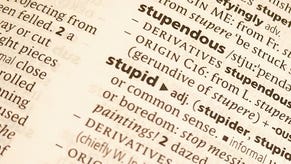EA: "We don't have a problem with second-hand sales as they are today"
UPDATE: EA's strategy will focus on a "gamer-first" perspective.
UPDATE: EA has said it is still deciding on a used-games strategy based on what Microsoft and Sony have announced.
"We are formulating our strategy based on the information they released," EA Labels president Frank Gibeau said during an investor call today.
"In general, we'll definitely be looking at a gamer-first [perspective] so we can continue to have a relationship with used game users that is a positive experience."
ORIGINAL STORY: It is one of the hottest topics in gaming: will third party publishers let you trade-in PlayStation 4 and Xbox One games?
Microsoft and Sony have very different used game strategies. For Xbox One games, you can only trade in your games at participating retailers, but third-party publishers "may opt in or out of supporting game resale and may set up business terms or transfer fees with retailers", according to Microsoft.
When it comes to PS4 games, as Sony revealed during its E3 press conference, there are no restrictions. But, as with PS3, third-party publishers are free to impose restrictions on their own games. Indeed, Sony has told Eurogamer it's powerless to stop them from doing so.
So, what will publishers do? Most have refused to comment on their policies. Some Eurogamer spoke to were surprised by recent announcements, including Sony's, and are yet to formulate plans.
But what of EA, one of the biggest third-party publishers in the world? According to Patrick Söderlund, EA Games Label boss and the executive in charge of the likes of Battlefield 4, Mirror's Edge, Dragon Age: Inquisition and Star Wars: Battlefront, a decision is yet to be made.
But there's reason to be optimistic.
"We don't have a problem with second-hand sales as they are today. We clearly articulated our stance when we abandoned Online Pass."
EA Games Label boss Patrick Söderlund
"We announced that we have abandoned Online Pass," Söderlund told Eurogamer at E3. "We're not doing that any more. And we're not doing that because we talked to people, our fans and our players, and they said, 'listen, we don't want to play our games like this.' We have to listen to them and we removed it. It's that simple.
"We don't have a problem with second-hand sales as they are today. We clearly articulated our stance when we abandoned Online Pass."
But will EA do anything - anything at all - to combat second-hand sales with next-gen games? we asked.
"We obviously have to look at what the first-parties are doing and follow any rules, but we have to scramble after these conferences and come back to what we think is right," Söderlund replied.
"But again, our general thesis is what the fans tell us they want, we'll give them."
The fans are saying they want to be able to trade-in their games, Eurogamer suggested.
"Then we'll look at that. And if they want that then we will probably allow that."
Söderlund's comments suggest EA will "opt in" to supporting game resale, but it may yet impose transfer fees in order to generate revenue from the market.
What's clear is that the next six months will be tumultuous as publishers react to first-party policies and the mood of hardcore gamers. Some analysts, including Wedbush Morgan's Michael Pachter, believe publishers are unlikely to restrict the second-hand market for fear of igniting a backlash among hardcore gamers. Sony Computer Entertainment Europe boss Jim Ryan told Eurogamer he agrees.









